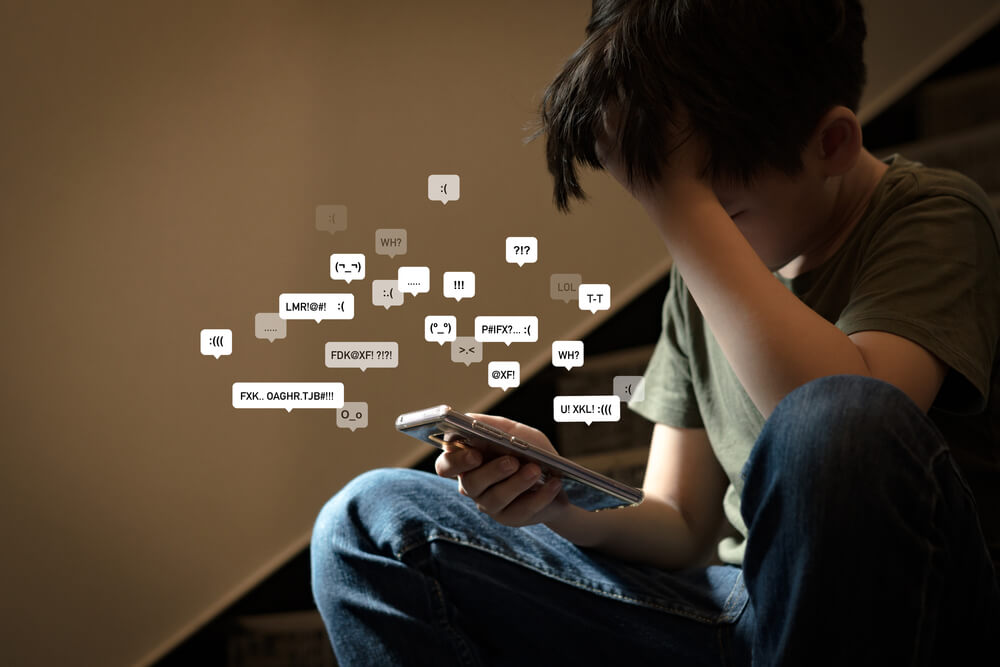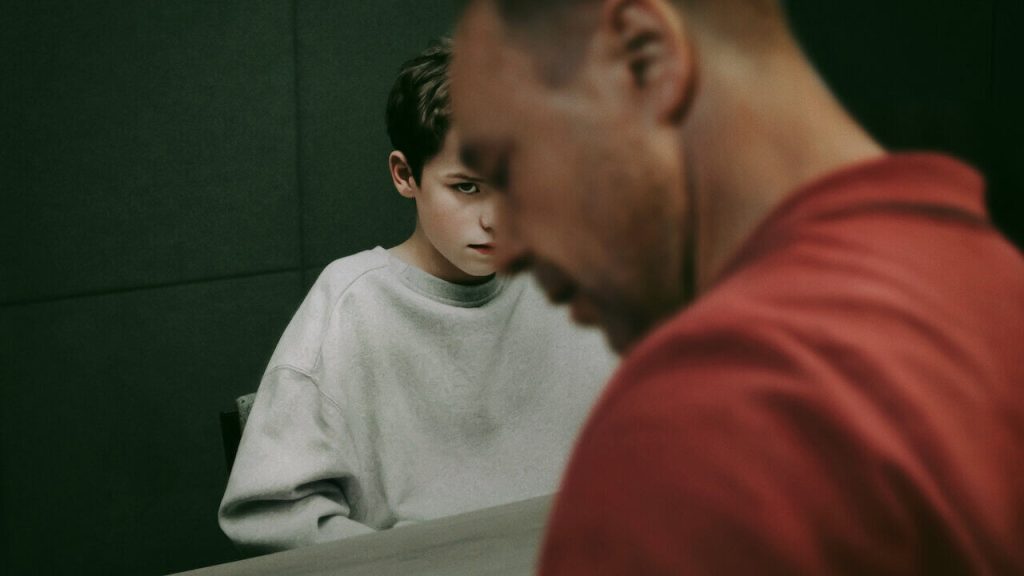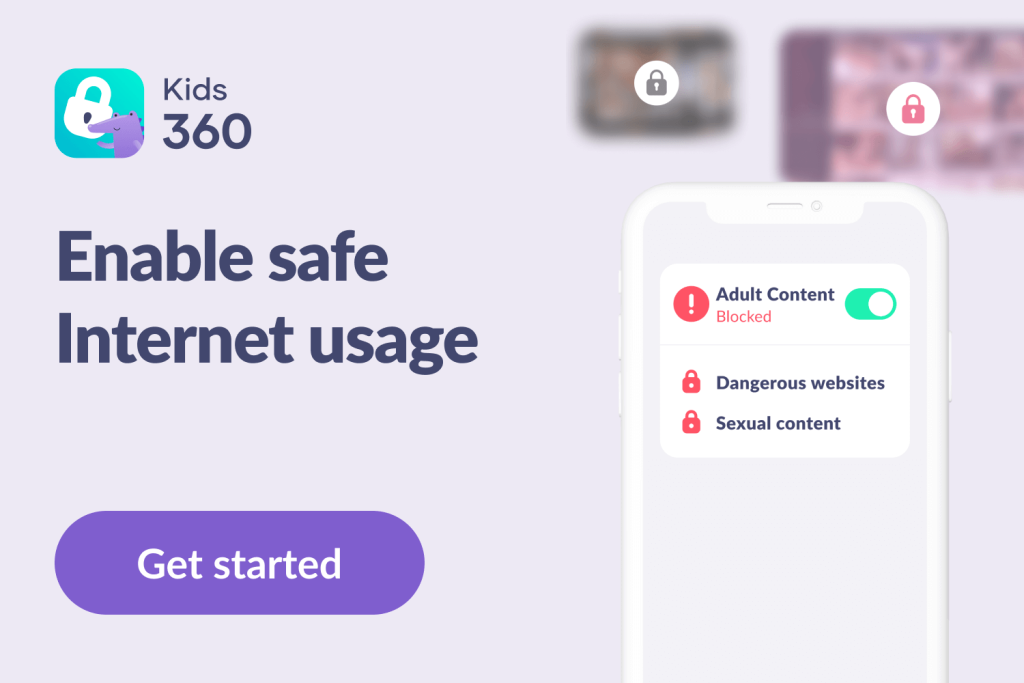How the Internet Teaches Boys to Hate Women: What the Manosphere Is

Teenage boys are often found browsing online, talking to other teens, and joining online communities across social platforms and networks, where connection with other people feels instant but not always safe. Recently, the dangerous and misogynistic concept of the manosphere has come to the attention of parents and mainstream media.
In January 2025, the Max platform released a series about the work of an emergency department in Pittsburgh—Pittsburgh Hospital. One of the characters is a withdrawn, pale teenage boy, David Saunders, whose behavior worries his mother. She tells the doctors that her son may be planning to harm girls at his school—he supposedly has a “blacklist.”
In March 2025, the British mini-series Adolescence premiered on Netflix—an ultra-realistic coming-of-age story. Its main character, 13-year-old Jamie, is detained on suspicion of murdering a classmate.
The dark, grim world that captivates the minds of teenagers worldwide is, unfortunately, not just the invention of modern drama creators. It is a real threat spreading through social media and beyond.
This world is known as the manosphere, and it attracts millions of boys and young men, while their parents often remain unaware, attributing changes in behavior to puberty and the challenges of growing up. Yet the signs are always there.
Contents:
- What Is the Manosphere?
- Why Do Boys Get Drawn into the Manosphere?
- Which Boys Are at Risk?
- How to Recognize That a Teen Is Engaged with the Manosphere
- How to Protect Your Son from the Influence of the Manosphere
- Alternative Positive Communities for Teens
- FAQs
What Is the Manosphere?
The manosphere is a segment of the internet where ideas of excessive—that is, toxic—masculinity, misogyny, and male supremacy are promoted.
It is not a single forum or social media platform, but thousands of websites, communities, channels, podcasts, blogs, and other entities created to spread misogynistic ideas. It’s a sprawling network of platforms that thrives on online hate and misleading narratives. The misogynistic content in the manosphere is heterogeneous—it ranges across a spectrum: from jokes about “sigma males” or descriptions of mewing techniques to radical manifestos calling for violence against girls and women. It’s often spread by influencers and pick-up artists on forums who frame harmful rhetoric as advice.
The manosphere has its own influencers and thought leaders. Internationally, these include Andrew Tate, who presents himself as a successful entrepreneur while spreading misogynistic rhetoric, and Elliot Rodger, whose violent actions were inspired by incel ideology. Communities of self-proclaimed pick-up artists who reduce human relationships to strategies and control also contribute to these dangerous ideas. These names highlight the danger of this digital space: it glamorizes dominance, hostility toward women, and a distorted vision of manhood.
For many teens, the manosphere initially appears harmless or even motivational. But beneath the surface lies a world of online misogyny, anti-women rhetoric, and radicalization that can deeply damage a teenager’s emotional development and worldview.
Why Do Boys Get Drawn into the Manosphere?

Credit: Adolescence (TV Mini Series 2025), Netflix
Teenagers are searching for themselves—as they grow, they rely less on their parents’ values and more on external authorities. Mentorship and exposure to inspiring adult role models are crucial for teens, helping them understand who they are and who they aspire to emulate. For many, the manosphere for teens appears to offer clear answers, but it distorts healthy human connections into hostility and hierarchy.
Everything can start innocently: a video on home workouts or a social media thread about the experience of rejection—after all, who hasn’t had their heart broken at 14? Within a few weeks, a boy may be watching a livestream of another guru claiming that all male problems are caused by women, because “they manipulate us and control us.”
Here’s what draws teenagers to the manosphere:
- A Sense of Belonging. Boys feel that someone cares about them in this community, which is especially important for children who feel neglected or invisible at home and at school.
- Clear Rules. The manosphere often says, “Do this, get that,” which can feel comforting to a child torn by the contradictions of puberty.
- Role Models. As mentioned, a teen needs to see examples in front of them. Manosphere leaders are portrayed as masculine, successful, and daring. This can appeal to adolescents who lack critical thinking skills or real-life experience. Often, misogyny gurus attract children from single-parent or dysfunctional families.
- Rebellious Sentiments. Teenagers often rebel against authority, established norms, and societal expectations. The manosphere exploits this by claiming to reveal secrets hidden by teachers, parents, and the media.
Which Boys Are at Risk?
From the description above, it’s clear that the manosphere attracts boys who are in an unstable emotional state.
These can include boys experiencing parental divorce, feeling self-conscious about their bodies, or having faced trauma or bullying at school.
This is also reflected in Adolescence, the series that accurately portrays a teenager drawn into misogynistic ideas. Its main character, Jamie, is searching for himself but lacks interest in sports his father enrolled him in; girls ridicule him, he feels humiliated and powerless, and he withdraws into himself, seeking solace in what the internet offers with its algorithmically curated content.
The manosphere gives boys a false sense of superiority, masking their insecurity, and a way to feel part of a community, using a special vocabulary to express their pain—even if that expression is distorted.
It is a kind of emotional stimulation similar to what is seen in cults and extremist groups, but packaged in memes and delivered with flashy, attention-grabbing jargon.
These ideas disrupt the emotional development of adolescents. When a boy is taught that vulnerability is weakness, that women are inherently manipulative, and that emotions make him “less masculine,” he learns to distance himself from his own feelings.
as mentioned, the manosphere is a spectrum, and no boy ends up at its most destructive edge instantly. They progress along this “corridor” — often referred to as the alt-right pipeline—gradually. Moving from one themed post or video to another, they gradually approach radical content, and this progression is evident.
What looks like empowerment is actually the politics of exclusion, convincing young people that domination is strength while compassion is weakness.
How to Recognize That a Teen Is Engaged with the Manosphere
First and foremost, changes appear in a child’s behavior and language. You may hear or see in their messages words such as: “alpha,” “beta,” “sigma,” “red pill,” “simp,” “feminazi,” “Chad,” “incel,” “80-20”, and others.
What These Words Mean in the Manosphere
- Alpha — a man who sees himself as a leader, controls others, and chooses partners for himself.
- Beta — an unattractive man, the complete opposite of an alpha.
- Chad — an especially attractive, active, and popular alpha male.
- Incel — short for “involuntary celibate,” meaning a person who cannot find a partner despite wanting one.
- Red pill — a concept borrowed from The Matrix. Followers believe that those who “take the red pill” finally see the world as it is: women’s pursuit of gender equality is a lie; in reality, they manipulate men.
- 80-20 rule — 80% of women are attracted to only 20% of men.
- Simp — someone who gives excessive, unreciprocated attention to another person.
- Feminazi — women whom the manosphere views not as fighting for rights but for domination over men.
A teenager may begin to openly insult girls or express beliefs that women are inferior to men. These remarks can target classmates, relatives, teachers, or even celebrities, singers, and influencers.
Traditional games and social interactions with friends may be replaced by withdrawal and an obsession with content on self-improvement—how to dominate, get rich, and “win at life.”
This withdrawal from familiar social circles can lead to secrecy and reluctance to discuss new interests. The boy might start clearing his browser history, using incognito mode, and reacting aggressively when asked what he is doing online or what videos he is watching.
How to Protect Your Son from the Influence of the Manosphere
There is no easy solution—unlike the manosphere, raising a teenager doesn’t come with a step-by-step algorithm, but parents can focus on internet safety for teens and take action by building awareness and guiding them toward healthier communities.
Preventing involvement in radical male-oriented groups requires a comprehensive approach that touches different areas of your teen’s life. This includes building trust, paying attention to your child’s hobbies, understanding how social media algorithms work, and having heart-to-heart conversations over dinner.
Create a Space for Dialogue
Discuss with your child topics that matter to them today. Yes, you might not play Fortnite instead of brushing your teeth or know every K-pop artist by name, but making an effort to understand interests outside your own world is crucial.
Don’t be afraid to discuss romance, relationships, and first crushes—even if these topics aren’t yet present in your son’s life. Your openness suggests that you’ll be ready to discuss these issues when the time comes.
Take an Interest in the Content Your Child Consumes
You don’t need to control every click; genuine curiosity is enough. Ask who his favorite TikTokers and YouTubers are, which channels he likes, what they talk about, and whether you can watch or listen to some examples together.
Build Your Digital Literacy and Awareness
If you don’t understand how algorithms work, why radical content spreads, or how influencers capture attention, your arguments and attempts to influence your teen will have little effect.
Keep educating yourself digitally: subscribe to channels about attention management, read books on marketing, explore research and popular science about the manosphere phenomenon—you can start with psychiatrist Stefan Krakowski’s Incels: How Virgins Become Terrorists.
Set Up Parental Controls
Tools that limit content consumption shouldn’t be used as punishment or a means of control over your child—lost trust is challenging to rebuild.
If you block or restrict something, explain why in an open, honest, and non-judgmental way. Any intervention in what your child does online or offline is a sensitive issue that needs discussion.
Recommended apps for parental control:
- Findmykids — helps parents track location, monitor online activity, and ensure the child’s safety in real time. The app also includes features like sound listening and notifications for unusual behavior.
- Kids360 — provides content filtering, screen time management, and safe browsing options.
Using these apps together creates a more reliable protective framework, combining real-time location tracking with smart content supervision.
Discuss Role Models
Be a role model yourself—show that you continue to grow, filter content critically, and think independently. Don’t avoid difficult questions, seek opportunities for informal interaction, and help your teen find hobbies where he can see results and feel valued, visible, and significant.
Alternative Positive Communities for Teens
Parents often ask, “If not the manosphere, then where should my teen go to connect online?” Fortunately, there are healthier online and offline spaces where boys and young men can build confidence, relationships, and a sense of belonging.
Online Forums and Spaces
Some online communities for boys that offer a more positive narrative include:
- Reddit’s r/AskMenOver30 and r/MensLib: These forums encourage constructive conversations about manhood, relationships, and mental health, offering supportive role models instead of toxic ones.
- Discord Servers for STEM, gaming, or fitness: Many moderated communities focus on skill-building, problem-solving, and teamwork. These give boys a sense of belonging while avoiding harmful rhetoric.
- Nonprofit Initiatives — Movember and The Good Men Project provide online content that normalizes vulnerability, empathy, and emotional awareness in men.
Encouraging Hobbies and Mentorship
While online spaces are important, real-world experiences are equally powerful in shaping how boys see themselves and others. When teens have opportunities to test their abilities, receive guidance, and connect with peers in safe environments, they are far less likely to seek validation from toxic online groups. Positive hobbies and strong mentorship can give them purpose, belonging, and healthier role models.
- Sports and Clubs — Martial arts, team sports, robotics, or music groups give boys healthy outlets for competitiveness, discipline, and connection.
- Mentorship Programs — Community organizations and after-school programs pair boys with positive adult role models who can guide them in confidence-building without misogyny.
- Creative Outlets — Writing, art, or coding projects allow teens to channel emotions and ideas into something constructive, rather than destructive narratives like digital misogyny found online.
By steering boys toward these kinds of communities, parents can help them experience belonging and structure without exposure to toxic masculinity or anti-women rhetoric.
Related: The Best Sport for Boys: Making the Right Choice for an Extracurricular Activity.
Protecting Boys from the Dangers of the Manosphere
The manosphere may seem like just another corner of the internet, but for many teenage boys, it becomes a gateway into dangerous ideologies. Its mix of digital misogyny, extremist rhetoric, and false promises of empowerment can reshape how teens view themselves, women, and relationships.
The good news is that parents are not powerless. By staying curious, fostering open conversations, and guiding teens toward healing communities, you can help them develop resilience against toxic online groups. Connection, mentorship, and emotional support are the strongest antidotes to the manosphere’s allure.
FAQs
What is manosphere?
The manosphere is an online network of forums, influencers, and communities that promote toxic masculinity, misogyny, and anti-women rhetoric. It ranges from memes to self-help style advice to extremist content encouraging violence.
Is the manosphere safe for teenagers?
No. While it may appear motivational or entertaining at first, the manosphere exposes teens to harmful ideas about women, relationships, and masculinity. It can lead to social withdrawal, increased hostility toward girls, and—in extreme cases—radicalization.
How can I help my teen avoid toxic online communities?
Encourage open dialogue, take an interest in the content they consume, and suggest alternative online spaces that promote healthy masculinity. Offline hobbies, sports, and mentorship programs also give teens belonging without harmful influences.
Can parents monitor online activity without invading privacy?
Yes. Parental control tools like Findmykids and Kids360 allow you to guide online habits while maintaining trust. The key is transparency: explain to your teen why boundaries exist and involve them in the process.
What resources help teens build positive online friendships?
Safe online spaces like moderated forums (e.g., r/MensLib), nonprofit initiatives, or hobby-focused Discord servers can provide belonging. Offline mentorship programs, after-school clubs, and creative groups are equally important for building positive relationships.
Cover image: myboys.me/Shutterstock
Проверьте электронный ящик




















